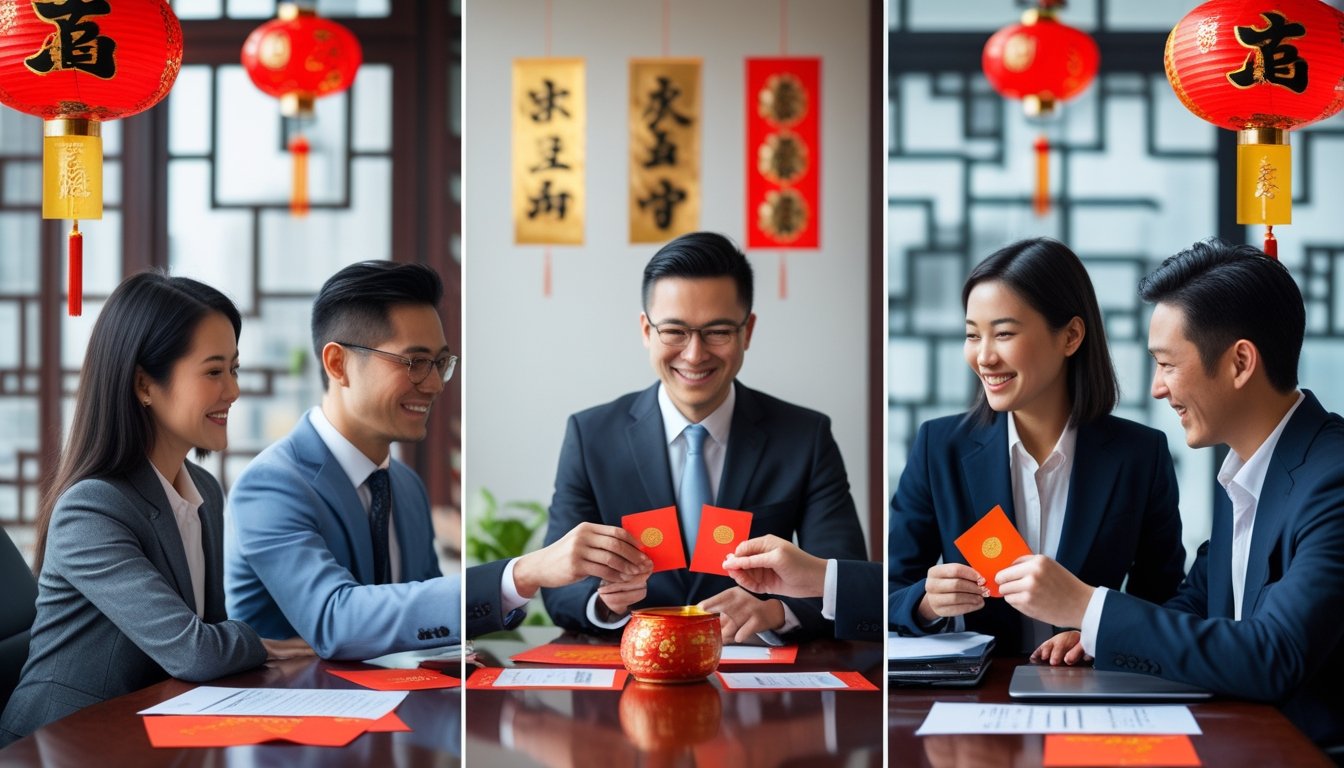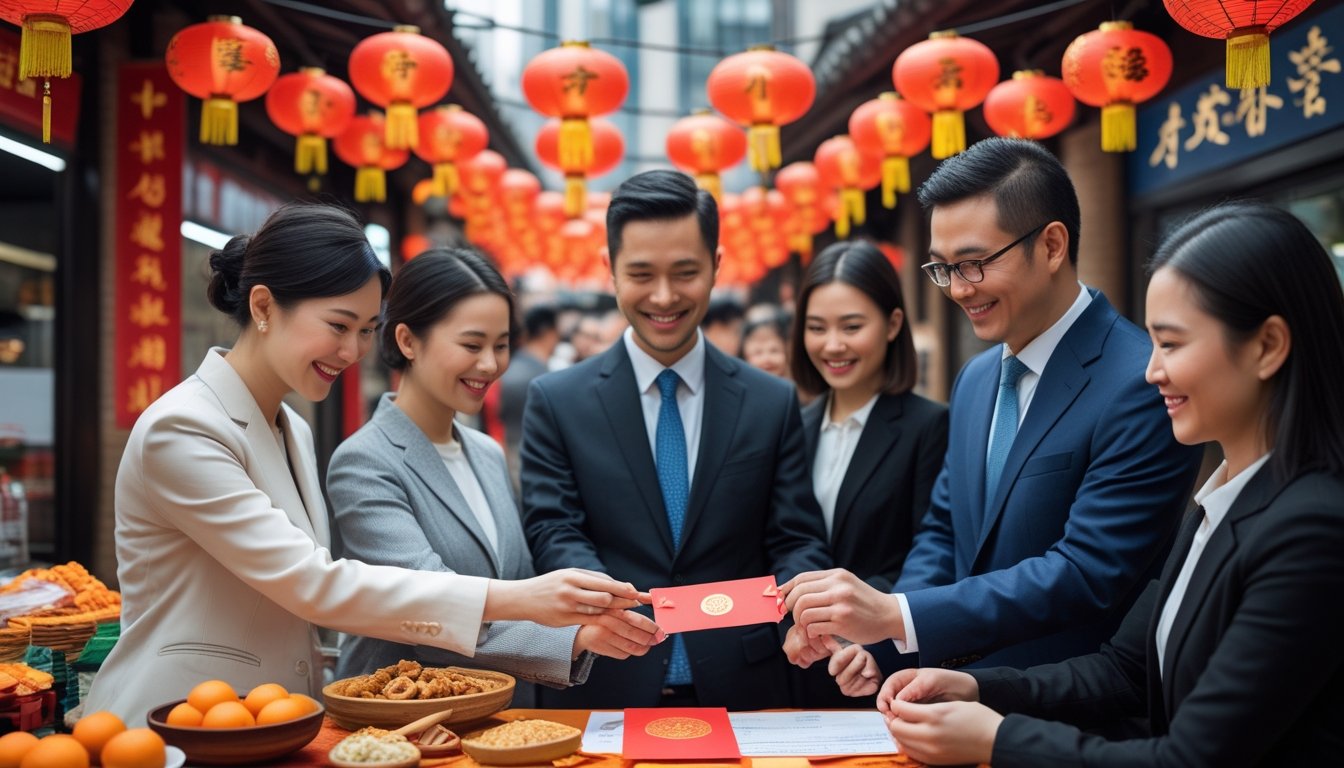The Chinese Spring Festival, also known as Lunar New Year, is the most important holiday in China. It marks the start of the lunar calendar and brings together centuries of traditions that continue to shape modern life.
For businesses, the festival is more than just a cultural event. It affects production schedules, consumer spending, and even cross-border contracts.
Understanding the Chinese Spring Festival helps companies plan ahead, respect cultural norms, and avoid costly disruptions. With the right legal and strategic guidance, businesses can turn this annual event into an opportunity rather than a challenge.
Want to understand the market behind the holiday? Explore the number of inhabitants in China and its impact on business.
What Is the Chinese Spring Festival

The Chinese Spring Festival kicks off a new year on the lunar calendar. It blends cultural roots, family, and a festive atmosphere, making it a huge deal in Chinese life.
Cultural Significance and Origins
You might know it as Chinese New Year or Lunar New Year. It follows the lunisolar calendar, so the date shifts each year—usually somewhere between late January and mid-February.
This festival goes back thousands of years. People once made offerings to ancestors, honored deities, and celebrated spring’s arrival. Those old customs still echo today, showing how family and nature stay at the heart of things.
Now, the Spring Festival stands as part of China’s intangible cultural heritage. It ties modern routines to old traditions, and you see that blend in daily life and social values.
But it’s not just about flipping the calendar. It’s about renewal, hope, and family sticking together—core values in Chinese culture.
Key Traditions and Celebrations
During the Spring Festival, family and community take center stage. The New Year’s Eve reunion dinner is huge—probably the most important meal of the year.
Dumplings are everywhere in the north, rice cakes in the south. People say these foods bring luck and wealth.
Decorations matter too. Red couplets on doors, lanterns everywhere, and a serious house cleaning to sweep out bad luck. Firecrackers and fireworks? Absolutely—they’re meant to scare off bad spirits.
On the streets, there’s the lion dance and dragon dance, filling neighborhoods with noise and color. And don’t forget the red envelopes—kids especially look forward to those, since they’re packed with money for good fortune.
Why the Festival Matters in Modern China
If you’re visiting or doing business, the Spring Festival shows just how much tradition shapes daily life. Businesses shut down or scale back because workers head home for reunions.
Hundreds of millions return to their hometowns. That’s not an exaggeration—it’s the largest migration on the planet, every year.
These days, the festival also fuels cultural pride. It keeps values like respect, unity, and renewal front and center, even as cities grow and lifestyles change.
The holiday’s economic punch is real too—travel, shopping, and entertainment all get a boost. And it’s not just China; Lunar New Year parties pop up worldwide, carrying that same festive energy.
Curious about long-term shifts? Read our insights on China’s declining population and what it means for future growth.
Business Impacts of the Chinese Spring Festival

The Spring Festival changes how goods move, how people spend, and when deals get done. If you’re involved, you’ve got to prep for shifts in operations, customer behavior, and cash flow.
Effects on Supply Chains and Production
Factories in China usually shut down for a week or two. Workers travel home, so production lines just stop. Some places even wind down operations a week or more before the official start, so people can make the journey.
This break means shipping delays and slower order fulfillment. If your company depends on Chinese manufacturing, expect longer lead times. It’s smart to plan inventory early and double-check schedules with suppliers before the break.
Logistics companies also cut back. Ports, trucking, and customs all slow, which leads to bottlenecks. Even after the holiday, things don’t snap back instantly—it can take weeks to get back to normal. Forecasting well and ordering early can really make all the difference.
Shifts in Consumer Spending and Travel
Spending habits shift during the festival. People splurge on gifts, food, travel, and celebrations. Anything tied to good luck—decorations, traditional foods, red envelopes—flies off the shelves.
Retailers roll out seasonal promos to catch this wave. If you’re selling to the Chinese market, tuning your products to these traditions can really pay off. Online platforms get busy too, especially with travel bookings and festival shopping.
Meanwhile, a lot of service industries slow down. Offices, factories, and even some shops close, so people spend more on leisure and family. Knowing these patterns helps you tweak your marketing and sales for better results.
Timing Contracts and Payments Around the Holiday
Negotiations and payments usually pause for the Spring Festival. Banks and offices close for several days, so transactions get pushed back. If you’ve got contracts needing signatures or payments, wrap them up before the holiday kicks in.
Companies often settle invoices early to keep cash flow steady and dodge disputes. It’s a good idea to confirm timelines with your partners upfront.
For international businesses, syncing schedules with Chinese counterparts is crucial. Planning around the holiday helps you avoid missed deadlines and keeps things running smoothly. It’s just less stressful for everyone.
Legal and Strategic Considerations for Companies
During the Spring Festival, you’ll need to be on top of workforce management, contract deadlines, and compliance risks. Planning ahead can save you a lot of trouble—and money.
Managing Workforce and Employment Obligations
Chinese labor law says employees get public holidays for the Spring Festival—usually seven days paid. If folks work during this stretch, you have to pay overtime, often double or triple the regular wage.
Because so many travel far to see family, absences can last longer than the official holiday. Some workers even resign before or after, so turnover spikes. It’s smart to confirm schedules, line up temps if needed, or adjust production plans in advance.
Clear communication really matters. Give written notice about holiday dates, pay, and return-to-work expectations. That way, you avoid confusion and stay compliant with local regulations.
Planning for Contractual Deadlines and Compliance
Business slows down since factories, offices, and logistics providers close or scale back. If you have contracts with Chinese partners, check delivery dates, obligations, and penalty clauses before the holiday.
Shipping and customs delays are pretty much a given. To avoid contract issues, renegotiate timelines in advance and add force majeure or holiday clauses if you can.
Tax and regulatory deadlines sometimes overlap the holiday. Double-check government calendars and file early to dodge penalties. Keeping a compliance calendar helps you stay on track, both in China and internationally.
When to Seek Legal Guidance in China
Get legal advice if you’re signing contracts involving production, distribution, or services around the Spring Festival. Local lawyers can help you write in clauses for holiday shutdowns and labor rules.
It’s also smart to get legal help for intellectual property if you’re planning product launches. Registering trademarks and patents in China takes time, and government offices close for the holiday.
If supplier or employee disputes pop up, a Chinese attorney can walk you through your rights. That way, you handle issues faster and protect your business.
Need help navigating cultural and legal complexities in China? Discover our full range of legal services for businesses.
Conclusion: Chinese Spring Festival
The Chinese Spring Festival is more than a celebration—it’s a period that reshapes business operations, supply chains, and consumer behavior across China. Companies that anticipate these shifts are better positioned to adapt and thrive.
From managing workforce obligations to aligning contracts with holiday schedules, legal foresight is essential. Proactive planning ensures you respect cultural traditions while protecting your business interests.
To learn more about how cultural events influence business in China, read our article on the Autumn Festival in China.
Frequently Asked Questions
Want a better feel for how the Spring Festival touches daily life, language, and customs? Just look at how long it lasts, what people call it, what everyone does, and the greetings you’ll hear. These details really connect tradition with both family and business.
How long is spring festival in China in 2025?
In 2025, the Spring Festival holiday in China lasts about a week. Most businesses close, and people tend to head back to work on the eighth day of the lunar new year. The busiest travel and family time is right at the start.
What's the difference between Chinese New Year and Spring Festival?
They’re the same holiday. “Chinese New Year” is what most folks outside China call it. In China, people usually say “Spring Festival.” Both mean the lunar new year celebration.
What do Chinese people do during the Spring Festival?
Families get together for big meals, especially on New Year’s Eve. People set off firecrackers, visit relatives, and hand out red envelopes with money. Lion and dragon dances, temple fairs, and other cultural events pop up in cities all over.
What to say in Chinese spring festival?
People usually say "Xīnnián kuàilè" (新年快乐), which means "Happy New Year." You might also hear "Gōngxǐ fācái" (恭喜发财), or "Wishing you wealth and prosperity." Both are friendly and everyone gets what you mean.
Subscribe to receive updates
Subscribe to receive the latest blog posts to your inbox every week.



